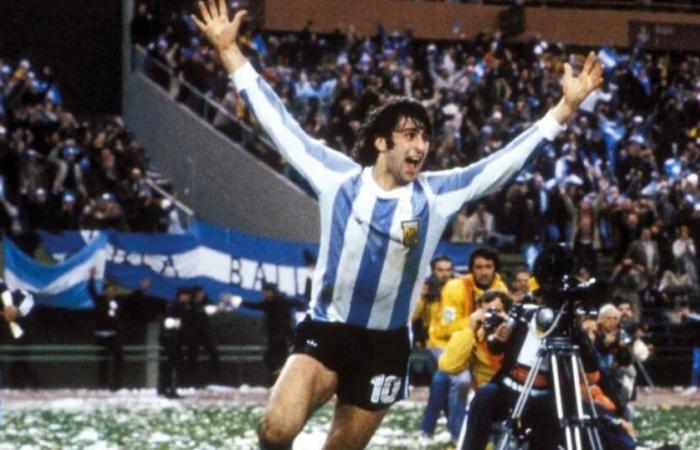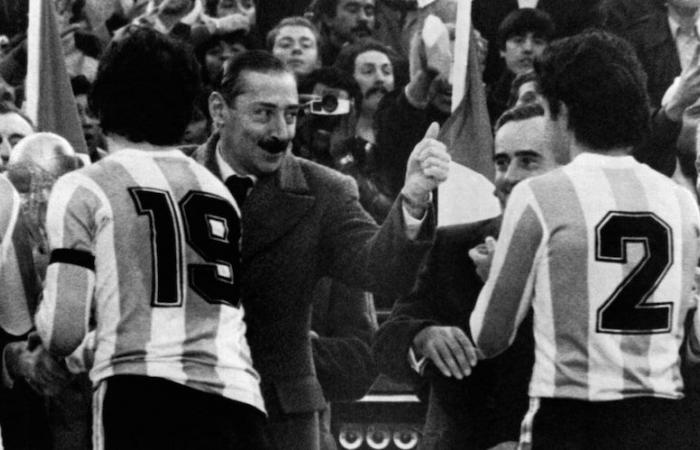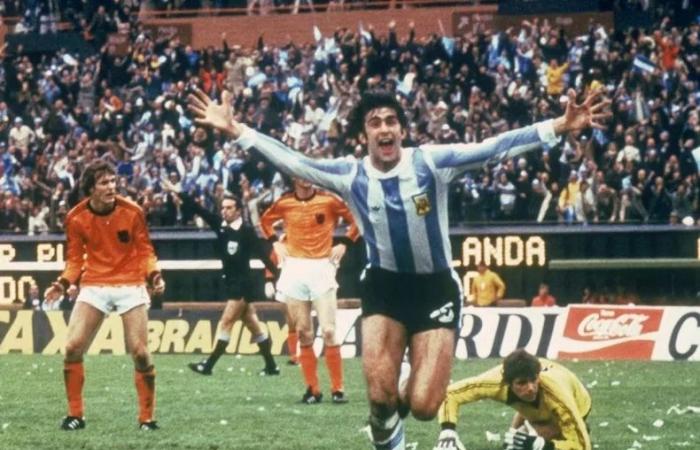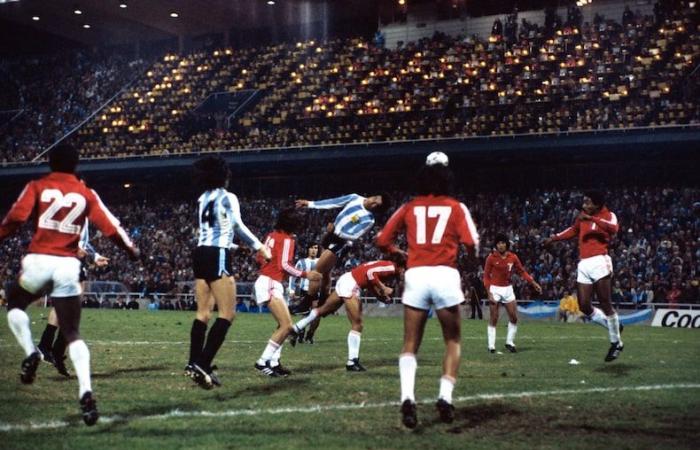A country under military dictatorship was the one that experienced the eleventh FIFA World Cup, Argentina 78. And his story, which inevitably crosses football and politics, was told in an unavoidable book called 78. Oral history of the World Cup (Sudamericana), by Matías Bauso. That volume was the basis for the documentary that the platform has just released Disney+. It is called precisely Argentina 78.
In four episodes, each approximately 45 minutes long, the history of the tournament is told. Since it was awarded to Argentina in 1966 until the final at the River Plate stadium. The duo of Lucas Bucci and Tomás Sposato were in the direction and scripts. Each chapter was made from audiovisual, photographic, and documentary archival work, as well as interviews with witnesses of the time. For example, the former technical director of the national team, César Luis Menotti, which was his last interview in life before his death in May of this year; two footballers from the squad: Mario Alberto Kempes and the captain Daniel Passarella; the leader of Montoneros, Mario Firmenich; and the specialized journalists Matías Bauso and Ezequiel Fernández Moores, among many others.
An aspect that draws attention is to see how within the Argentine Military Junta, which took power with a coup d’état on March 24, 1976there was not a single opinion about the World Cup. Some raised the option of not holding it, or of limiting the tournament’s expenses; Others, seeing the propaganda potential of the event, supported it at all costs without considering the expense. On the first side was the president of the board, Lieutenant General Jorge Rafael Videlaand on the other side, was the admiral Emilio Eduardo Masserathe “tough” of the board, who secretly wanted to take over as President of the Republic, and for that the World Cup suited him like a glove. Like Pinochet and Leigh in Chile, it was a train wreck.
In fact, the documentary reveals that terrible means were hidden behind Massera’s hand to achieve his goal.. For example, the dark plot surrounding the tragic death of General Acts of Omar (first president of the World Cup organizing body), close to Videla, and his replacement – curiously – by a Massera stalwart, Vice Admiral Carlos Lacoste.
The harsh intersection between the military leadership and the Minister of Finance is also revealed, Juan Alemanncontrary to uncontrolled spending (without accountability, with overpricing and suspicions of corruption) to hold the World Cup, even maintaining that holding the tournament in Argentina “It’s a big mistake.” Surely someone didn’t like those statements very much, because while the crucial match between Argentina and Peru was being played, which defined the albiceleste’s passage to the final, a bomb exploded in Alemann’s home, destroying his living room.
Additionally, the testimony of the founder and leader of the Montoneros organization appears, Mario Firmenichwho pointed out that “unilaterally” His organization decided to give a truce for the fight against the dictatorship during the days of the tournament, and in a radius close to the stadiums. This did not prevent the organization from intervening in the TV signal during the television broadcast of the Argentina-Poland match in the second phase of the tournament. through a complex homemade transmission system and managed to filter a message to the Argentine televisions that were following the match. In Firmenich’s words, they did it to “break press censorship.”
At the same time, it is reported how the Mothers of the Plaza de Mayo organization, desperate to find their missing children and relatives, spoke with documentary filmmakers and foreign correspondents – especially the Dutch – to publicize the terrible drama they were going through. . Only one local newspaper, the Buenos Aires Herald, which published in English, gave them a platform. It was all part of the context of the country.
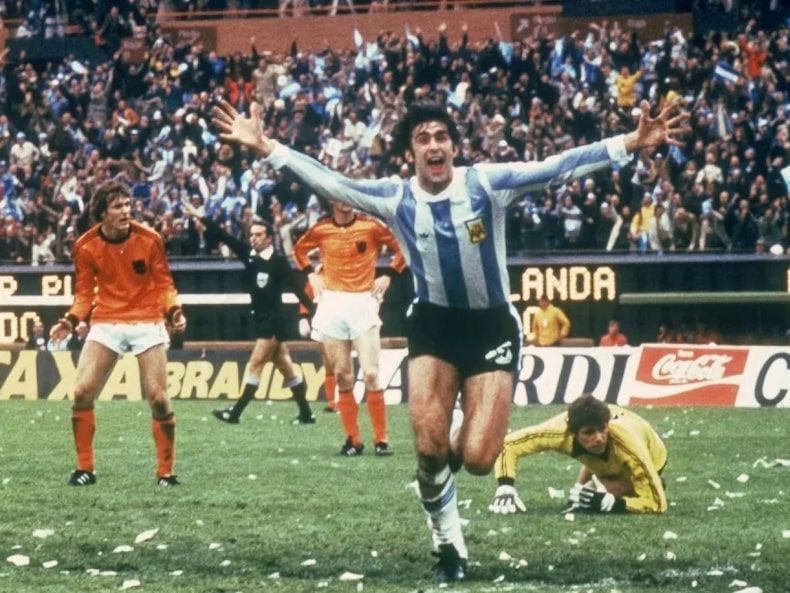
To advance to the final, The trans-Andean team had to beat Peru, in the last duel of the second phase, and score at least four goalsa matter of overcoming Brazil, who before the duel had a better goal difference than the locals. Although the rival was strong up front, the documentary gives an account of several events that surrounded that match in which the albiceleste finally beat the Rímac squad 6-0.
For example, Before the start of the match, Jorge Rafael Videla visited the Peruvian dressing room together with the US Secretary of State. Henry Kissinger. “Seeing him (Videla) come in was impressive,” says the former Peruvian player. German Leguia. “I saw Kissinger, he was giving a message as if to say: ‘I don’t know what could happen if we don’t win.’”
But the most telling is the testimony of the former midfielder Jose Velasquez. “Six of us received money” and even details who they were. “The main ones, those who played the best, perhaps starting with the goalkeeper.” And he also accuses him of reacting late in at least a couple of goals. This, the nationalized Argentine Ramon Quiroga He also speaks in the documentary. Although he acknowledges that in Tarantini’s goal “I reacted slowly,” he answers his former teammate by saying that in that game “I didn’t miss any of the goals,” and incidentally points out: “Knowing José, if you You put a microphone, speak.”
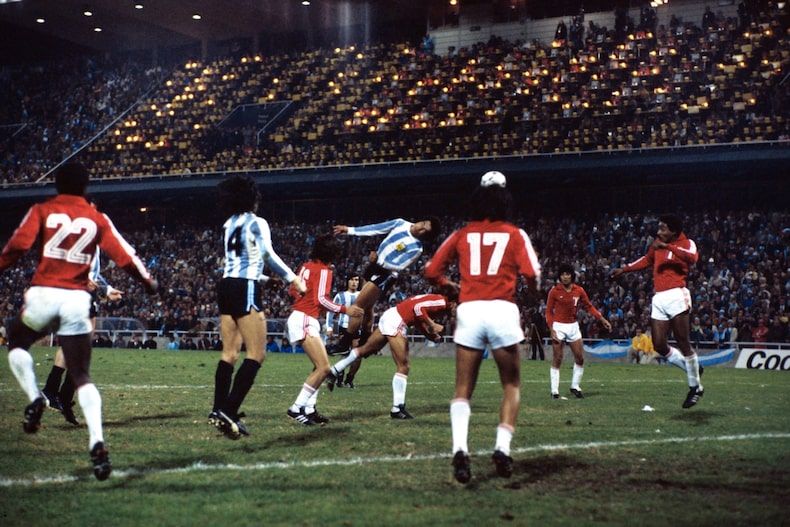
Velásquez accuses that he was substituted in the second half, when – according to his version – “they had never taken me out.” And his thesis is supported by journalist Mario Fernández from El Comercio, from Lima. “The errors may have occurred in the sense of the team’s makeup. Take out three, four starters who had been playing to put in others who had not played? “That motivates suspicion.”
Leguía also accuses doping on the part of the Argentines. “They were flying,” he said, adding that after the World Cup “many fell apart, they were not what they were in the World Cup.” But Mario Kempes dismisses the accusation saying that the match “wasn’t enough for doping,” and the “Matador” adds: “I think we would have beaten Peru even with our eyes closed, with the confidence we had and because of how badly Peru was playing.” Passarella seconds him: “They (Peru) had good players, but they were already out of the World Cup.”
Anyway, the Argentine eleven won the crown on the afternoon of June 25, 1978, in the Monumental stadiumof Buenos Aires with a score of 3-1 against the powerful Netherlands directed by Ernst Happel, heir to the “total football” of Rinus Michels. The fourth and final episode of the series is dedicated to that match alone. And after the World Cup, and as had been warned, the economic crisis worsened, social protests began gradually, and there was even a visit from the Inter-American Human Rights Commission that was key to beginning to uncover the horror that ended up exploding on him. to the dictatorship. And all for the ball.

